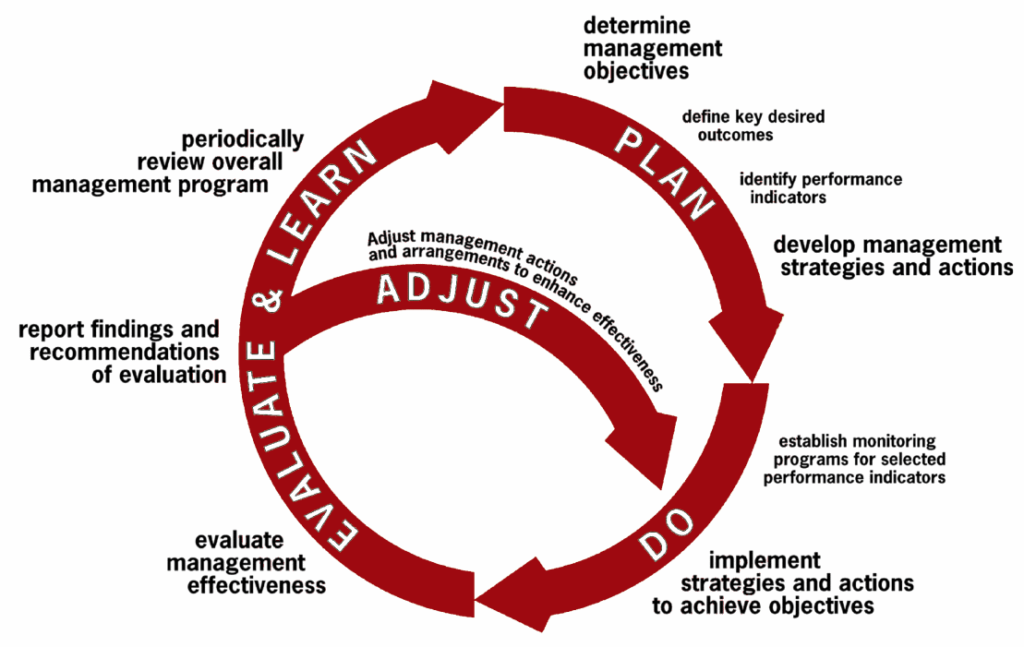Adaptive Management
Coral reefs are highly complex and dynamic systems and future conditions are difficult to predict. As a result, managers must make decisions in the absence of perfect knowledge. While this can sometimes lead to reluctance to take action, the absence of active reef management can have important and unpredictable consequences. The challenge of decision-making with incomplete knowledge has given rise to the concept of adaptive management, which includes monitoring as a central component.
Adaptive management recognizes that management actions create opportunities to learn and improve. The adaptive management cycle is a structured, continual process that provides a basis for robust decision-making in the face of uncertainty through monitoring and learning feedbacks.
Adaptive management provides a method for:
- Making more informed decisions about what actions are the best for a conservation project
- Measuring and testing the effectiveness of strategies used
- Learning and adapting to improve strategies

Adaptive Management Cycle. Adapted from Commonwealth Scientific and Industrial Research Organisation (CSIRO) Marine and Atmospheric Research
Adaptive management improves long-term management outcomes, but it is important for managers dealing with urgent problems to find the correct balance between gaining knowledge to improve management in the future and achieving the best short-term outcome based on current knowledge.
